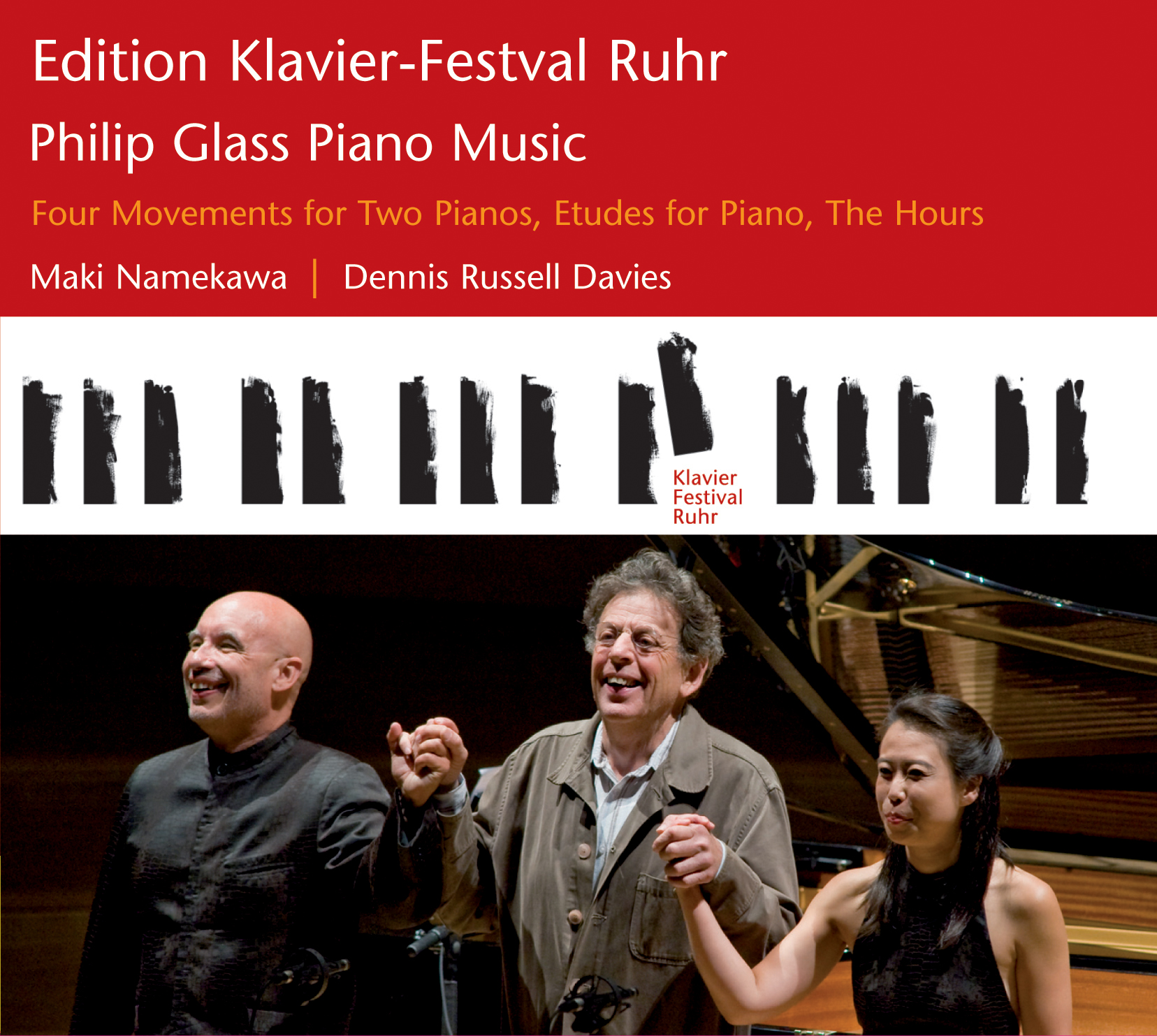
Info
Jay Gottlieb, piano
Catalog
Tracks
2. The Olympian – Lighting of the Torch 3:17
3. Metamorphosis One 5:37
4. Metamorphosis Two 6:26
5. Metamorphosis Three 5:00
6. Metamorphosis Four 6:17
7. Metamorphosis Five 4:51
8. Mad Rush 12:52
9. Wichita Vortex Sutra 7:08
Notes
If Young offers a continuous sound of a constant pitch, Riley a repetitive principle subject to the improviser’s fancy, and Reich a process of gradual progression, Glass, however, insists on the use of an additive process of development founded on the progression of a repeated figure. He thus proposes a variable within a simple arithmetic gradation: rhythmically in unison and in parallel, contrary or similar motion. Glass’s music thus produces sound differences in time, using the same elements in constantly differentiated sequences.
Creating these differences within a context of repetitions is not only the heart of Minimalism, but it is also one of the basic principles of Far-Eastern musics. For instance, tabla music by Ravi Shankar and Allah Rakha that Glass knew quite well, having made a study-trip to India, then to Northern Africa and Central Asia.
When all is said and done, it is freedom in sounds that is essential. Perception is thus altered, inasmuch as, just as the Variations of Incomplete Open Cubes or Serial Project No I by Sol LeWitt modify the relationship between man and object, minimalist music transforms time and duration, replacing external passive listening by internal active listening. The matter of attention is the very interior of the sound. And Glass’s minimalist music gives full reign to this experience. Glass enjoys saying that his music is like “the motor on a space machine”.
His book Solo Piano (1991) is made up of three pieces, Metamorphosis, Mad Rush and Wichita Vortex Sutra. Metamorphosis consists of five parts. One introduces a simple melody in the upper register accompanied by a ground bass based on alternating thirds which remain constant throughout the cycle of five movements, as well as Mad Rush and Wichita Vortex Sutra. Two uses the same writing but this time ornate with upper register arpeggios. Three, in D minor, makes use of off-beats and Four of off-beats with arpeggios, whereas Five takes up the original theme.
Mad Rush and Wichita Vortex Sutra manifest more development. While Mad Rush takes up the theme of Metamorphosis both, at the beginning and at the end, it is built polyrhythmically using, amongst others, a three-for-two counter rhythm. Wichita Vortex Sutra, the finale, uses off-beats and arpeggios similarly to Four.
Opening for Piano (1982) is stylistically like Metamorphosis, with alternating thirds in the left hand and the three-for-two counter rhythm.
The Olympian — Lighting of the Torch is the most solemn piece, written for special circumstances: the opening of the Olympic Games in Los Angeles of 1984. This composition is hymn-like while remaining faithful to the composer’s style.
Philip Glass’s music for piano is a true reflection of this “metamorphosis” in receptivity, as shown by the titles: Metamorphosis consisting of five movements, the majestic equivalent of the mandala. The music sketches out a cosmic diagram with the Earth, the Centre and Number Five, surrounded by the four elements; a spirit composed of an uncontrived melodv, a whirlwind, a vortex with in the middle a zone of quietness, prolonged by the tireless and intuitive words of the sutrâ. Philip Glass does not make use of the instant diluted in time, but rather evokes the cyclic instant, an onslaught, Rush, and an opening, Opening, of a multiple instant and an eternal present.
— Olivier Lussac
Credits
Recorded: December 1998 — Espace de projection Ircam, Paris. Recording and Editing engineer: Franck Rossi. Recording supervision: Armin Firouzmande. Piano Steinway tuned by Philippe Bailleul.
Cover photo: AKG Paris. Photos: Paula Court/Chester Music (Philip Glass), Jean-Luce Huré (Jay Gottlieb).
Liner notes: Olivier Lussac. English translation: Jacqueline Boulogne. Layout: Yves Taniou. Publisher: Dunvagen Music Publishers, Inc.
Prestige Collection — A Pianovox Production. Pianovox is a division of AGON Company, France.
Made in France by Universal. © 1999 Pianovox.
Related
Mad Rush
Metamorphosis I – V
The Olympian: Lighting of the Torch and Closing
Wichita Vortex Sutra
Glassworks
RECORDINGS:
Glassworks on Sony Masterworks
Solo Piano on Sony Masterworks
